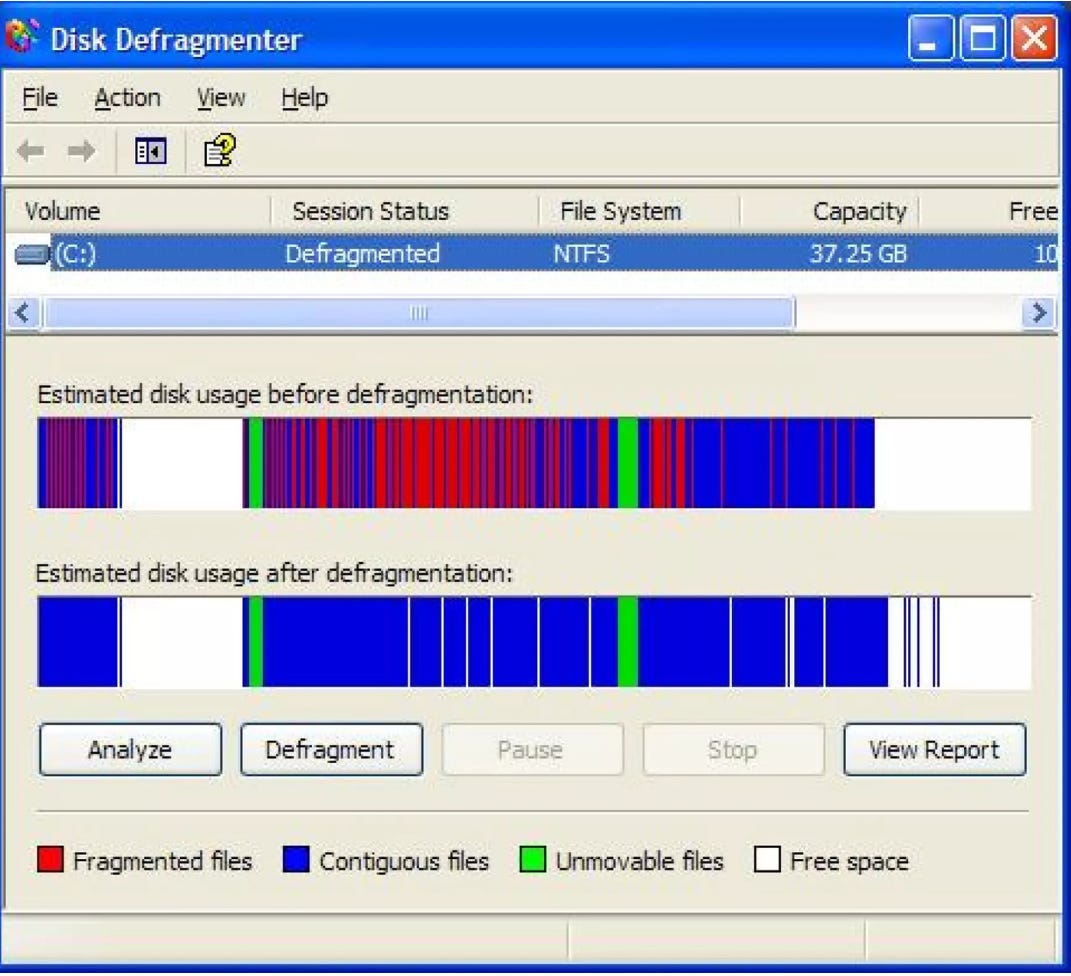As we progress through life, the number of thoughts that we accumulate grows continuously.
We think about short term plans. We think about long term plans.
We think about the past. We think about the future.
We think about the present, rarely.
We think about what others think about us.
We think about our calendars, appointments, grocery lists.
We think about work.
When I was a kid, I spent a lot of time messing around with computers. One of my favorite things to do was to “defragment” my hard drive.
When you defragment your hard drive, you take some time to rearrange the files on your computer to make them easier to find. The process of defragmentation physically reorganizes the contents of a mass storage device into the smallest and most compact number of chunks in order to create more free space.
Over time, as computers accumulate more and more data, they become fragmented and store this information in different places. This makes it harder for your computer to find information quickly and slows down performance. Our minds are no different.
As our minds become more full of experiences, memories, thoughts, beliefs, preferences, and all sorts of other information, this information gets stored in various places. But sometimes thoughts just float free in our heads with nowhere to go, constantly lingering in the background draining our mental resources. Our mental hard drives become fragmented over time.
Perhaps this is why after a certain age stubbornness sets in. Maybe our minds become too full and stop changing because there is no more storage left. Maybe our mental computer slows down because it can only handle so much information.
Lately I have had a lot on my mind. This got me thinking about how it could be possible to defragment my mind to make it perform better — to free up space for hard thinking.
Mental defragmentation requires a conscious effort to “capture” and “store” thoughts efficiently in our minds. If we do not do this, they swirl around, creating mental lag. This mental lag makes it harder and harder for us to perform mentally demanding activities. By organizing and compacting our thoughts into discrete folders, we free up space for new information and reduce the background processing that creates mental lag.
How is it possible to defragment your mind?
There are countless methods, but journaling is undoubtedly one of the best.
Journaling allows us to stop and organize the information in our heads. It allows us to become more clear on what is important, what is urgent, and what can be set aside for a later time. Writing our thoughts down allows us to look at them for what they are.
Very often after externalizing what is in your mind, you will realize that there was not as much swirling around as you originally thought. That the mental noise which made you feel anxious could be turned off or quieted by capturing your thoughts in writing.
Don’t spend too much mental energy carrying untethered thoughts in your head. Write them down and reduce the mental lag created by a fragmented mind.





